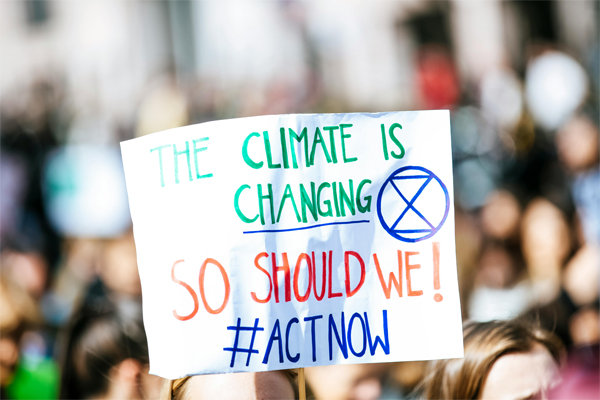Businesses that fail to adapt to mounting climate risks could see annual losses of up to $610 billion by 2035, according to two new reports released by the World Economic Forum (WEF).
This financial hit – equivalent to suffering COVID-19-level disruptions every two years – will disproportionately impact telecommunications, utilities, and energy sectors unless decisive action is taken. The financial implications of inaction are staggering. Extreme heat and climate hazards are projected to cause $560–610 billion in annual fixed asset losses for publicly listed companies within the next decade. Additionally, energy-intensive sectors that lag in decarbonization face mounting costs, with carbon pricing alone potentially cutting up to 50% of earnings by 2030.
Yet, the reports highlight a clear path forward. Companies that invest in climate adaptation, resilience, and decarbonization are not only mitigating risks but also unlocking significant value. Research from the Alliance of CEO Climate Leaders, representing 131 global CEOs and 12 million employees, shows that every dollar spent on climate adaptation can generate up to $19 in avoided losses.
GREEN ECONOMY OPPORTUNITIES
Amid these risks lies an enormous opportunity. Green markets are projected to expand from $5 trillion in 2024 to $14 trillion by 2030, with early adopters gaining a competitive edge. Sectors such as alternative energy, sustainable transport and eco-friendly consumer products are growing rapidly, offering businesses a chance to lead in the transition to a net-zero economy.
“Pathfinders in net-zero transitions and nature-positive solutions are demonstrating how businesses can create value while supporting communities and ecosystems,” said Gim Huay Neo, Managing Director at the WEF. “By addressing climate risks holistically, companies can drive sustainable operations, foster resilience and build long-term economic strength in an increasingly uncertain world.”
COST OF DELAYED ACTION
The two reports, Business on the Edge: Building Industry Resilience to Climate Hazards and The Cost of Inaction: A CEO Guide to Navigating Climate Risk, offer actionable strategies for businesses to navigate the challenges ahead. Developed with support from Accenture and Boston Consulting Group (BCG), the studies emphasise the need for immediate action to safeguard stakeholder value and build climate-resilient operations.
Leading researchers, including Johan Rockström of the Potsdam Institute for Climate Impact Research, warn that five key Earth systems are nearing irreversible tipping points. These include the potential collapse of the Greenland and West Antarctic ice sheets, which could unleash up to 10 meters of sea-level rise, affecting food security for half a billion people. Businesses ignoring these risks may find themselves unprepared for cascading supply chain disruptions and regulatory tightening.
RESILIENCE STRATEGIES
The reports provide a roadmap for companies ready to act, turning risks into opportunities. Resilience strategies, such as decarbonizing operations, safeguarding nature, and investing in adaptation measures, can help companies thrive in a fast-transition scenario. Evidence suggests most industries can cost-effectively reduce over 50% of their emissions, driving both sustainability and profitability.
“These reports bridge the gap between science and business by translating complex climate data into actionable strategies for CEOs,” shared the Alliance of CEO Climate Leaders. With clear methodologies and datasets, the findings equip businesses to mitigate risks and seize opportunities in an era of accelerating climate change.
CALL TO ACTION
The stakes have never been higher. As Earth systems approach critical tipping points, businesses must lead the charge in building sustainable, resilient economies. By investing in adaptation and innovation today, companies can protect their bottom line while contributing to a thriving future for communities and ecosystems alike.
The time to act is now. Businesses that embrace this challenge will not only safeguard their earnings but also position themselves as leaders in the transition to a sustainable global economy. Both reports – Business on the Edge: Building Industry Resilience to Climate Hazards and The Cost of Inaction: A CEO Guide to Navigating Climate Risk – are available to download from the WEF website.








































